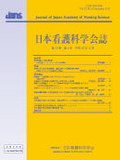Japanese
English
- 販売していません
- Abstract 文献概要
- 参考文献 Reference
- サイト内被引用 Cited by
要旨
目的:周産期・小児医療におけるFamily-Centered Care(以下,FCC)の概念を分析し,日本における子どもと家族中心のケアへの基盤づくりの示唆を得る.
方法:4つのデータベースを使用して検索された計40件の文献を対象とし,Rodgersの概念分析法を用いて分析した.
結果:5つの属性:【子ども・家族の尊厳と多様性の尊重】【子どものケアに関する家族と医療者の情報の共有】【家族をエンパワメントする支援】【子どものケアに関する意思決定支援】【家族と医療者の良好なパートナーシップに基づく協働】,3つの先行要件,5 つの帰結が抽出された.
結論: 本概念は「子どもと家族の尊厳と多様性を尊重し,家族と医療者の良好なパートナーシップを基盤とした情報の共有,意思決定支援,家族のエンパワメントなどの包括的かつ継続的なケアプロセス」と定義された.本概念モデルは,日本の周産期・小児医療における看護実践・教育・研究の質の向上に寄与するものである.
Abstract
Purpose:This study sought to clarify the concept of family-centered care in perinatal and pediatric healthcare to use as a guide for more effective provision of family-centered care for children and their families in Japan.
Method:Using Rodger's concept analysis method 40 articles were analyzed and categorized identified from four databases: CINAHL Plus with full text, MEDLINE, PsycINFO, and Ichushi-Web, using the keywords “family-centered care” or “family-centred care” matching with “perinatal” or “neonatal” or “pediatric.”
Findings:Attributes were: 1)respect and dignity for children and families; 2)information sharing about child's care; 3)supporting empowerment of families; 4)supporting decision-making and 5)partnership and collaboration between families and healthcare providers. Antecedents factors were: 1)social (paradigm shift from traditional, healthcare provider-centered care to patient- and family-centered care; 2)healthcare receivers (diverse values and differing needs for healthcare) and 3)healthcare providers (discrepancies between actual and ideal practices of family-centered care). Consequences were: 1)greater satisfaction with care; 2)greater psychological health of parents and improvement in parental competencies; 3)strengthening family bonding and function; 4)improvement of physical and psychological health of children and 5)health professionals' greater job satisfaction and competencies.
Conclusion:Thus concept of family-centered care was defined as “a continuous and comprehensive care process, including information sharing about child's care, supporting decision-making and empowerment of families, based on a partnership and between families and healthcare providers, carried out with respect and dignity.” The proposed model can contribute to the improvement of nursing education, practice, and research in the fields of perinatal and pediatric healthcare in Japan.
Copyright © 2013, Japan Academy of Nursing Science. All rights reserved.


